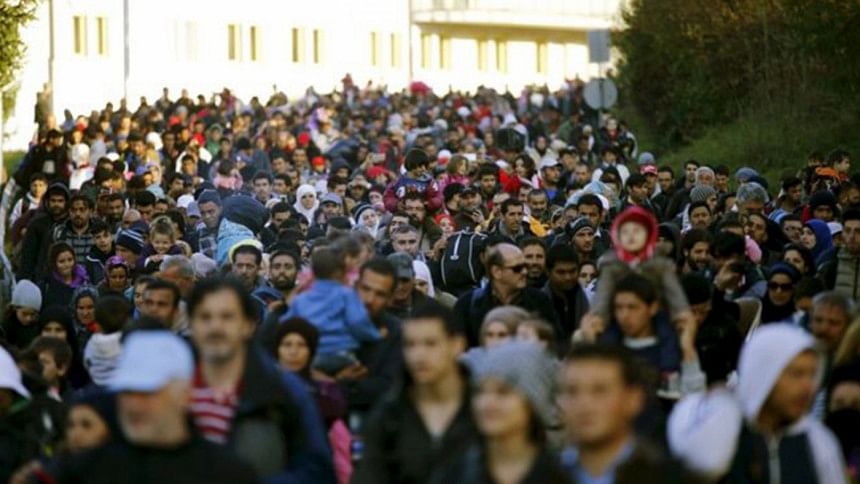Border closure threat over migrant flow

Balkan countries at the front line of the migrant crisis say they could close their borders to avoid becoming buffer zones for new arrivals.
Bulgaria said it, Romania and Serbia would act if states further north, which migrants hope to reach, close their doors.
The threat comes ahead of talks between Balkan states and EU members in Brussels.
Slovenia's president said his country would "act on its own before it is too late" if no solution was reached.
Prime Minister Miro Cerar had previously refused to rule out building a fence along its border with Croatia.
The International Organization for Migration said that more than 9,000 migrants arrived in Greece every day last week - the highest rate so far this year.
Most of the migrants - including many refugees from the conflicts in Syria, Iraq and Afghanistan - want to reach Germany to claim asylum.
Germany says it expects to take in 800,000 asylum seekers this year. The procession of those seeking a route north is leading to bottlenecks in parts of southern and eastern Europe, where many countries say they lack the resources to look after new arrivals.
Bottlenecks have also been exacerbated in part by Hungary closing its borders with Serbia and Croatia, forcing migrants to seek alternative routes north.
Slovenia saw 58,000 arrivals in the week leading up to Saturday, and many people are waiting in wet and cold conditions.
While Germany has not indicated it would refuse more migrants, Bulgaria's president said on Saturday that his country, Romania and Serbia would respond immediately if it did so.
"We are standing ready, if Germany and Austria close their borders, not to allow our countries to become buffer zones," President Boiko Borisov said. "We will be ready to close borders."
Slovenia's President Borut Pahor echoed Borisov's concerns, saying it "cannot become a pocket in which refugees would be stuck" if Germany and Austria refused to take migrants.
On his Facebook page, Pahor said the success of the summit would be measured partly on whether stricter controls are implemented to stop migrants travelling from Turkey to Greece.
Croatian Prime Minister Zoran Milanovic said such controls were the only solution. "Everything else is a waste of time," he said.
The leaders of all affected countries will attend the emergency summit in Brussels.
German media say countries will be presented with a 16-point plan by European Commission President Jean-Claude Juncker.
In an interview published on Sunday by the German newspaper Bild, Juncker said it was crucial Balkan countries stop "passing on" migrants to neighbouring countries.
Countries "must take care to uphold orderly procedures and conditions," Juncker told Bild.
Milanovic dismissed Juncker's plan, saying: "Whoever wrote this does not understand how things work and must have just woken up from a months'-long sleep."

 For all latest news, follow The Daily Star's Google News channel.
For all latest news, follow The Daily Star's Google News channel. 



Comments